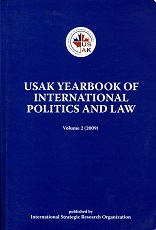The Greater Central Asia Partnership Initiative and Its Impacts onEurasian Security
The Greater Central Asia Partnership Initiative and Its Impacts on Eurasian Security
Author(s): Fırat PurtaşSubject(s): Politics / Political Sciences
Published by: USAK (Uluslararası Stratejik Araştırmalar Kurumu)
Keywords: Central Asia; Greater Central Asia Partnership; USA; Russia; Poverty
Summary/Abstract: Besides the “Tulip Revolution” in Kyrgyzstan, the bloody events in Andijan city of Uzbekistan, decisions adopted in Astana Summit of Shanghai Cooperation Organization; the “The Greater Central Asia Partnership” has been one of the most important subjects of regional debates about Central Asia of the year 2005. This Project can also be considered as an instrument of U.S.’s changing policy towards the region. Being Afghanistan-centered, this project foresees a North-South line with the construction and invigoration of transportation and communication lines between Central Asia and South Asia. It was argued that the main aim of the Project was to challenge Russia’s and China’s influence in Central Asia and to demonstrate the permanent existence of the U.S. in the region. The article argues that the fundamental reason for security threats in the region basically stems from the poverty problem, and, in this framework, the “Greater Central Asia Partnership” may provide significant benefits to this region’s security.
Journal: USAK Yearbook of Politics and International Relations
- Issue Year: 2009
- Issue No: 2
- Page Range: 307-319
- Page Count: 13
- Language: English

